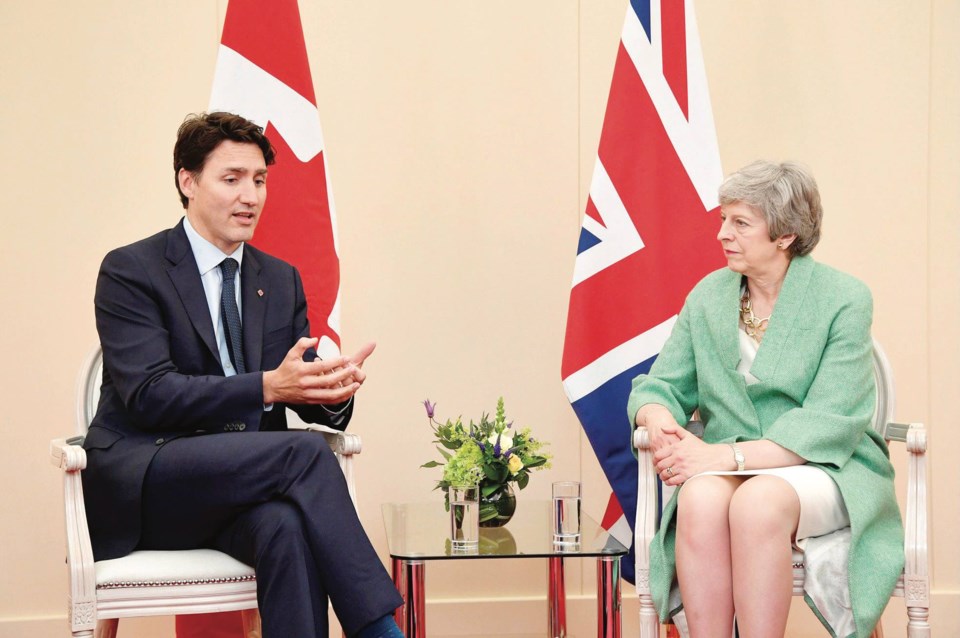When Prime Minister Theresa May stepped down on Friday, the worst English leader since the days of Ethelred the Unready was finally gone.
Not even King George III could match May’s unbelievable incompetence, and at least he had the excuse of being mad.
It might be thought Neville Chamberlain could offer competition, but Chamberlain was merely wrong. He wasn’t a political pyromaniac.
By the time May left Number 10 Downing St. for good, the former Home Secretary had wrecked her government and greatly damaged the chance of negotiating an acceptable Brexit deal with the European Union.
She also left her party in tatters.
In recent elections for the European Parliament, that most useless of political institutions, May’s Conservatives came in fifth among the British parties, with just nine per cent of the vote. That’s the worst outcome for the Tories to any national or multinational institution since the party was formed in the 1830s.
May’s first error was to call a general election in 2017, just two years after the preceding vote had given her party a comfortable lead in the House of Commons.
She did so because, at the outset, the Conservatives were 20 points ahead in the polls, and because Labour Leader Jeremy Corbyn was widely seen as unelectable.
But British voters don’t like that kind of shameless opportunism and her government lost its majority, being forced to lean on Northern Ireland’s Democratic Unionist Party to stay in office.
Then, charged with executing Britain’s withdrawal from the European Union, she made a second fatal misstep. She tried to do a deal with the pencil pushers in Brussels.
As she put it herself, in her departing speech: “Never forget that compromise is not a dirty word. Life depends on compromise.”
But you can’t compromise with the Eurocrats. Why on Earth would they offer Britain a generous, or at least a minimally acceptable arrangement?
The United Kingdom is Europe’s second largest economy. Any kind of Brexit would be a calamity for the EU.
Worse than that, it might give other member countries pause for thought. There is growing restlessness throughout the continent over attempts by EU officials to progressively extinguish nation states.
If you held a Brexit-style referendum today in several of those countries, you might get a vote to leave.
EU leaders understand that. In their view, the only way to discourage others from following Britain out the door is to impose ruinous terms on Westminster. May dealt with this reality by offering one concession after another, and allowing deadlines to pass without consequences.
This played into the EU’s hands. They want to drag this out until, eventually, the Brits give in.
So what should May have done? The only practical option from the start was to forget “negotiating” and simply leave.
True, there were difficulties. Some in her own party were hardly enthusiastic. That contributed to her downfall, just like internal strife brought down then Prime Minister Margaret Thatcher in 1990.
As well, opponents argued that a hard Brexit would be economically disastrous. Tariffs against British goods and services would be erected immediately on the French side of the English channel.
And the Brits would counter with tariffs of their own. But who wins that fight?
One in seven cars built in Germany is sold in the U.K. Britain is the second largest market for French wine.
What happens when German automobile factories start laying off 16 per cent of their workers? When French Chateaus cut back their operations?
With both parties hurting equally, how long would it take for the Eurocrats to face facts? You tried threatening and it didn’t work. Now you need to remake the EU as it was originally intended — a tariff free zone, not a supranational government.
May’s likely successor, Boris Johnson, who is a one-time mayor of London and amusingly called “a dangerous populist” by NBC, understands this.
Whether he can deliver remains to be seen.



